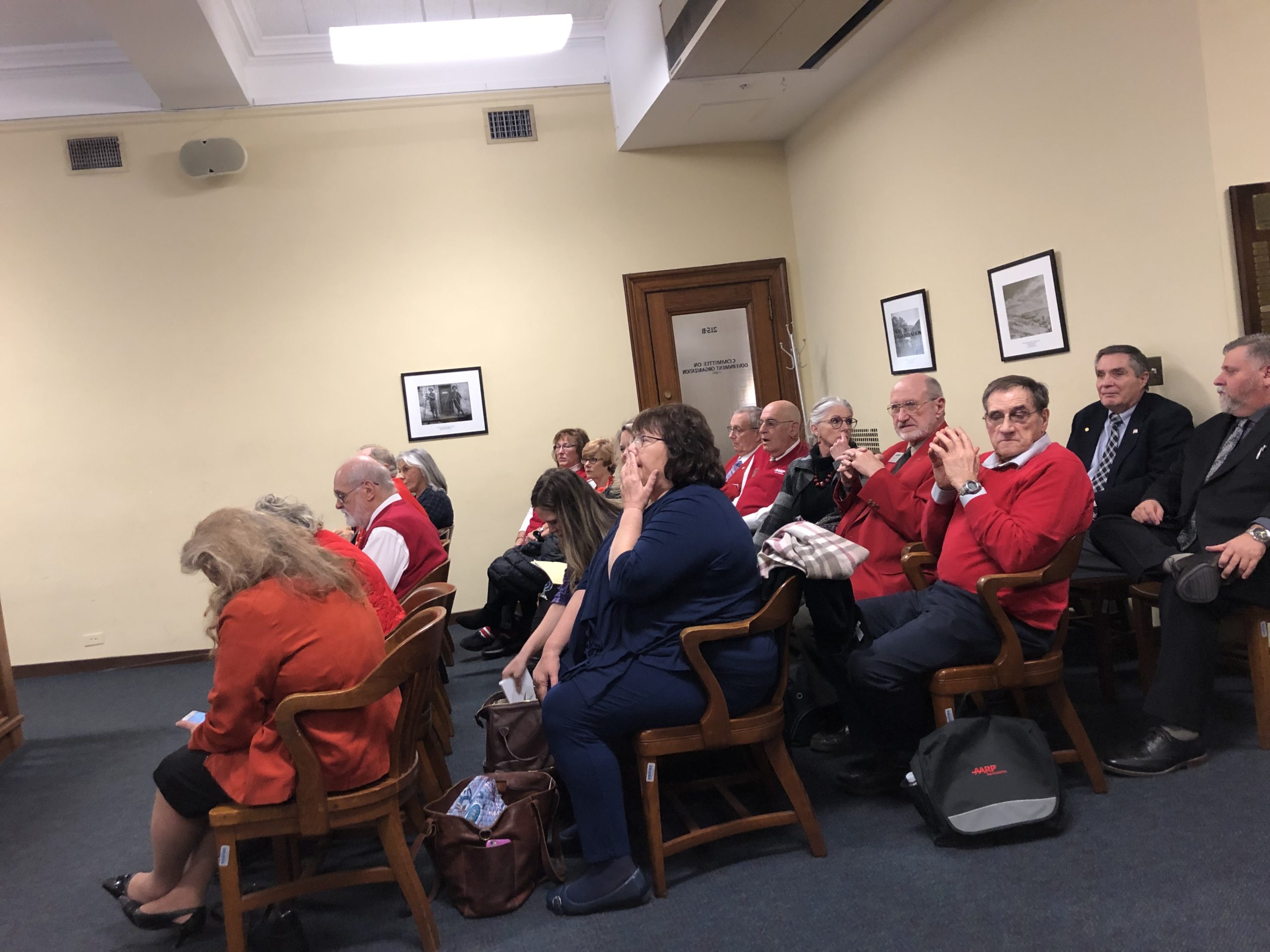AARP WV, Healthy Grandfamilies present to House of Delegates Committee on Senior, Children, and Family Issues
AARP WV says challenges are real and struggle is mighty for 300,000 caregivers in West Virginia
By Crystal Good for WV Press
CHARLESTON, W.Va. — The concerns and needs of West Virginians over 50, grand parents and children were outlined Wednesday for the West Virginia House of Delegates Committee on Senior, Children, and Family Issues.
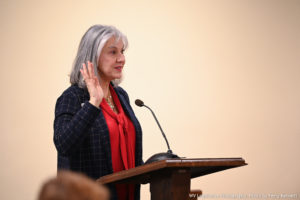
Chairwoman Ruth Rowan, R-Hampshire, opened the committee meeting saying, “I see red” in reference to the AARP Capitol Advocacy Team — wearing red jackets and accessories — who filled the room’s audience area.
AARP State President Jane Marks addressed the committee.
AARP WV is a a chapter of the nation’s largest nonprofit, nonpartisan organization dedicated to empowering Americans over age 50.
Marks said the organization’s mission was committed to strengthen communities by advocating for health security, financial stability and personal fulfillment for the 300,000 West Virginians who are AARP members.
“No one’s possibilities should ever be limited by their age,” Marks said.
Marks presented AARP’s 2020 legislative agenda, which includes legislation to address rising prescription drug prices, caregiving services and support, financial and retirement security, consumer protections, and strengthening communities.
Marks said in a recent survey of voters age 50 and older, four out of 10 people responded that they did not fill a prescription their doctor ordered them to take due to the cost.
“West Virginia families often have to decide between food, medicine, and paying their utility bills,” Marks said.
Marks asked the committee to increase access to state-funded and Medicaid home and community-based care by removing barriers to telehealth services and to support broadband enhancement.
Marks, who has been a family caregiver, said the challenges are real and the struggle is mighty for caregivers in the State. She said these improvements would give the nearly 300,000 family caregivers needed breaks, greater access to respite care, and reduce the financial burden.
Marks described the ongoing fight against elder abuse, especially financial exploitation.
AARP called for new legislative and regulatory protections to strengthen Adult Protective Services (APS) and enhancing civil and criminal penalties to protect our most vulnerable citizens. Marks said AARP joined with the West Virginia State Auditor’s Office to enhance protections for vulnerable adults against financial exploitation through House Bill 4377 – The Protection of Vulnerable Adults from Financial Exploitation Act.
The Committee later voted unanimously in support of this bill.
Marks also asked the committee to support House Bill 4362, which addresses abuse and neglect cases of vulnerable adults and children. The legislation establishes penalties for emotional abuse of an incapacitated adult; penalties for abuse, neglect or emotional abuse of a non-verbal special needs child; and, penalties for causing death of a non-verbal special needs child.
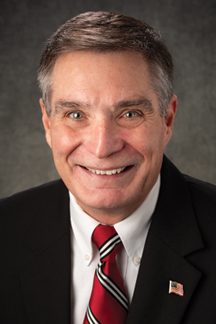
Delegate Tom Bibby, R-Berkeley, a sponsor of H.B. 4362 — Relating to penalties for neglect, emotional abuse or death caused by a caregiver — spoke to the committee with disturbing testimony about the bill’s genesis. He said that in 2019 a parent sent their child to a Berkeley County school with a recording device. The adult caregiver and teachers aid at the school can be heard threatening a non-verbal child with bodily harm.
Bibby said the bill was needed to protect the most vulnerable from this type of extreme verbal abuse and physical threats. He said because there was nothing in West Virginia code that made these acts criminal, prosecutors could not hold accountable people who emotional abuse incapacitated adults and nonverbal special needs children. Bibby said the bill would give prosecutors the ability to bring charges.
The Committee later approved HB 4362 with unanimous support and recommended the bill to the floor.
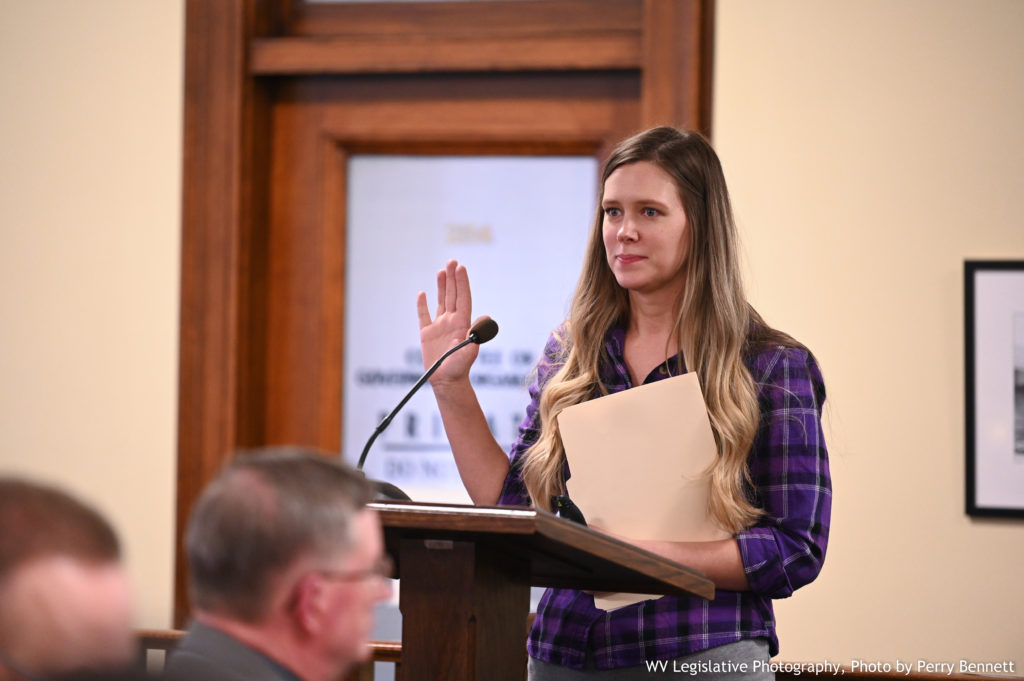
Bonnie Dunn, an Extension Specialist with the West Virginia State University Healthy Grandfamilies program, introduced Riley Freeland, a social worker from Harrison County, who presented concerns from parenting grandparents in Harrison County.
The concerns included financial, child care, parent reunification and de facto custody.
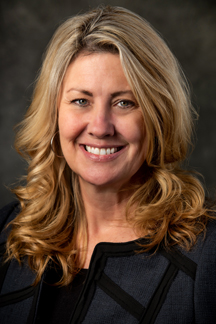
Delegate Erikka Storch, R-Ohio, asked about the organization’s relationship with DHHR, stating that she is aware of on going issues with DHHR.
“It doesn’t seem like we are making any inroads,” Delegate Storch said.
She said the Committee needs to delve down into the problems with DHHR, especially with kinship families. She asked the Committee if they could work on legislation to support the needs of kinship and grandfamilies, de facto custody.
Storch said, “We need to give the grandparents space to talk and be vulnerable.”


